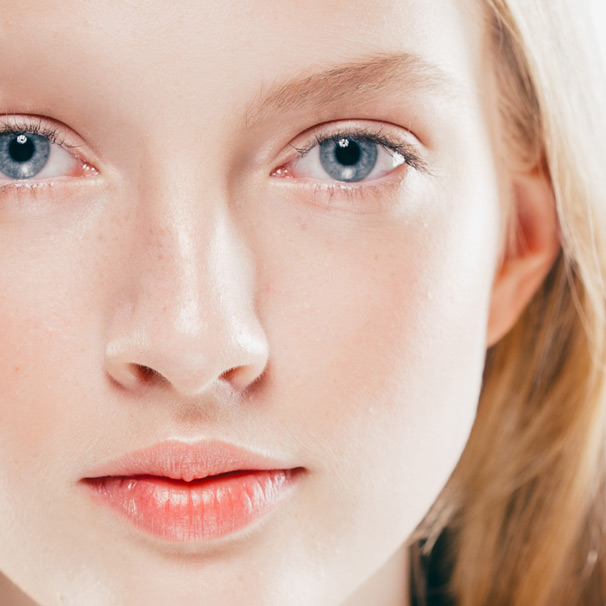Eyebrow Loss
Eyebrows frame the face. Your entire appearance can change if you lose your beautiful brows. Have you ever been told that you lost your eyebrows because you over-plucked? While over-plucking may certainly lead to diminished growth of the brows, did you know there are a variety of conditions that can result in the temporary or permanent loss of eyebrows?
Hair will be lost by a variety of situations that affect its growth cycle, or the area from which it grows. Should you take medication that stops hair growth, such as chemotherapy, you can lose hair. Or if you have a skin condition that causes significant inflammation within the area, the hair can fall out in response to the problem. A skin disease in which foreign tissue or cells come into the area may push the hair out in an attempt to take over. Certain hormonal or endocrine conditions can also wreak havoc on the hair follicles in this area. Infections and some autoimmune diseases may also lead to a loss of hair.
Below is a list with descriptions of the best-known conditions that may result in a loss of eyebrows: Should you find yourself in this predicament, check with your dermatologist. There may be something you can do.
Endocrine Disease or Imbalance
One of the most obvious categories, conditions that affect our hormonal balance may certainly lead to hair loss within the eyebrow region. This may be due to internal conditions like pregnancy and thyroid disease, or the use of medications like birth control pills. Fortunately, addressing the situation often results in hair re-growth.
Thyroid disease
Pregnancy
Hormone Intake: Danazol, BCPs, Progestesrone, Diethystilbesterol (DES), HCG (pregnancy hormone)
Chemotherapy
The insults of chemotherapy are not insignificant. Chemotherapy affects the production of many cell types, not just the cancer. That is why so many of these therapies result in temporary hair loss. Here are some of the more common chemotherapy agents that can cause hair loss: (this is not a complete list)
Chemotherapy Agents: Cyclophosphamide, Bleomycin, Daunorubicin, Methotrexate, Tamoxifen, Taxol, Vinblastine, Colchicine, Melphalan, Systemic 5-Florouracil, Etoposide, Ethambutol, Interferon Alpha, Interleuken
Infiltrating Cancer
Cancer, whether locally growing or spreading into the skin may push out the hair in areas it is overtaking. Sometimes this will appear as an obvious surface growth (especially with skin cancer), and other times there may be a lumpy thickening of the area such as when lymphoma or leukemia cells infiltrate deeper tissue.
Mycosis Fungoides, a T Cell Lymphoma of the Skin.
Leukemia Cutis, a state where leukemia spreads from the bloodstream into the skin.
Local Skin Cancer, including Basal Cell Carcinoma and Squamous Cell Carcinoma.
Kaposi's Sarcoma
Infections
Infectious conditions can either directly affect the hair follicle, or hair shaft, or create such inflammation in the region that you literally scratch the hair out. Patchy hair loss is a good indication of problems like Syphilis. Infiltration of the infection deep within the skin such as what occurs with Hansen's Disease can squeeze the hair follicles out of the way.
Fungal infections: Fungal infections can occur on hair bearing areas of the face and lead to typically temporary hair loss.
Lice: The itching and scratching cycle associated with lice of the brows and lashes can cause you to literally pull them out.
Hansen's Disease (aka Leprosy): Can infiltrate the brow region leading to thinning eyebrows.
Syphilis: Who thought that a venereal disease could cause hair loss? However, syphilis can cause "moth-eaten" hair loss in more advanced stages.
Autoimmune Disorders
The definition of an autoimmune disease is that the body turns on itself, mistakenly destroying tissue that belongs. In other words, the body basically thinks that a germ is present and is out to get rid of it. Autoimmune diseases are a broad category and encompass a multitude of diagnoses. Here are a few that can lead to hair loss.
Lupus Erythematosus: All autoimmune diseases can put hair at risk. Inflammation of the skin due to a variety of lupus-like conditions may result in patchy hair loss.
Alopecia Areata: In this condition, hair is specifically targeted by the body for destruction. A random condition where any hair is potentially at risk.
Vitiligo: This disease where the color-making cells of the skin are destroyed may cause enough inflammation to accidentally result in some hair loss as well.
Inflammation from "Common Skin Conditions"
That itch, scratch cycle can lead to more inflammation, and ultimately hair loss. Few people are aware that "routine" skin diseases can sometimes result in hair loss, but here they are:
Seborrhea
Psoriasis
Atopic Dermatitis/Eczema
Contact Dermatitis
Skin Growths
If something happens to be growing on the surface, chances are the hair isn't going to be able to penetrate through this thick shell-like barrier. Remove the growth, and you may be able to re-grow the hair. Keep in mind, however, that if removal leads to significant scar formation, the hair may not re-grow.
Seborrheic Keratosis: Age-related "barnacles of life".
Moles
Sebaceous Hyperplasia: Growth of specific oil glands.
Warts
Hemangiomas: Blood vessel growths.
Infiltrating Disorders
This is a mixed bag of conditions that all have 1 thing in common. They all create an environment within the dermis (lower portion of the skin) that squeezes out the hair follicle's ability to flourish.
Alopecia Mucinosis: A disorder in which a viscous material called mucin infiltrates the deeper areas of the skin, resulting in hair loss.
Sclerosing Disorders: Scleroderma, Morphea and Discoid Lupus Erythematosus.
Scars: Particularly large keloids.
Medication
Everybody knows someone who has had an unusual reaction to a medication. Eyebrows can be affected just like any other hair if a medication is known to cause hair loss. Here are some of the general categories and major players within them.
Antihypertensives: Propranolol, Atenolol, Captopril, Clonidine
Antidepressants/Psychotics/Emotional Stabilizers: Prozac, Lithium, Haldol, Amitriptylene, Sinequan(Doxepin), Imipramine
Seizure Medication: Phenytoin (Dilantin), Phenobarbital, Valproic Acid
Heavy Metal/Elemental Poisoning
It's hard to believe in this day and age that we could be poisoned by our environment, but periodically, you hear about a case. Here are a few compounds to be aware of:
Mercury
Arsenic
Thallium
Iodine
Gold: A side effect from taking it for the control of diseases such as Rheumatoid Arthritis
Vitamin/Mineral Overdose
Too much of a good thing often leads to problems. Excessive oral ingestion of vitamins can be a real problem when it comes to the skin.
Nicotinic Acid: A "B" vitamin.
Vitamin A: This also applies to its derivatives like Accutane,Acitretin, Soriatane, etc.
Anti-Inflammatory Medications (NSAIDS)
Naproxyn: Such as Naprosyn, Alleve, etc.
Ibuprofen: Such as Motrin, Advil, etc.
Acetaminophen: Such as Tylenol.
Miscellanous
Halothane: Used for general anesthesia.
Hypertriglyceridemia: Very high blood fats called triglycerides.
Topical ophthalmic betablocker agents/drops (such as Timolol) may cause reversible eyebrow or eyelash loss.
Trichotillomania, a habit of pulling out hair. Repeated insult of plucking out the hair can destroy the hair follicle and lead to permanent loss.
Over-plucking: Yes, over-plucking can again lead to destruction of the hair follicle and potentially permanent loss of the hair over time. Eyebrow hair follicles tend to be sensitive to removal of the hair, so plan your brow shape and try not to get carried away tweezing.
Androgenic Alopecia, that condition that causes "balding" can also lead to thinning of the eyebrows over time. While some may argue this to be a hormonal condition, others would include it with the general category of age-related problems.
Treatment Option
While not FDA approved for this use, dermatologists have been reported to treat eyebrow loss with the off-label use of prescription prostaglandin analog drops used to help grow eyelashes. Discuss your work-up and care with your physician.
While I hope that you never have to deal with an issue such as the loss of eyebrows, I would encourage you that there is more to examining this issue than a simplistic dismissal by your doctor. Check with a board-certified dermatologist and get the facts you need to solve the problem.
Audrey Kunin, M.D.
This content is sponsored by DERMAdoctor. The author receives compensation for its creation. All content is the legal copyright of DERMAdoctor, Inc, and it may not be used, reprinted, or published without written consent. The information provided is for entertainment purposes only and is not intended to provide medical, legal or other professional advice.



I'm writing from Beverly Hills, but I am from Wichita. For years I've operated my own medical company in Beverly Hills and once did research at Wesley Medical Center during the medical audit era.
Thank you for your forward thinking ideas and products. I was introduced to your excellent Poetry retinol product on QVC. You should still be on one of the shopping TV networks.
Your article on brow loss was so thorough. I'm sure that many have benefited by its ease and informational content. Thank you so much for all that you contribute to medicine and society.
Kindest regards,
E'Vette Zeitlow